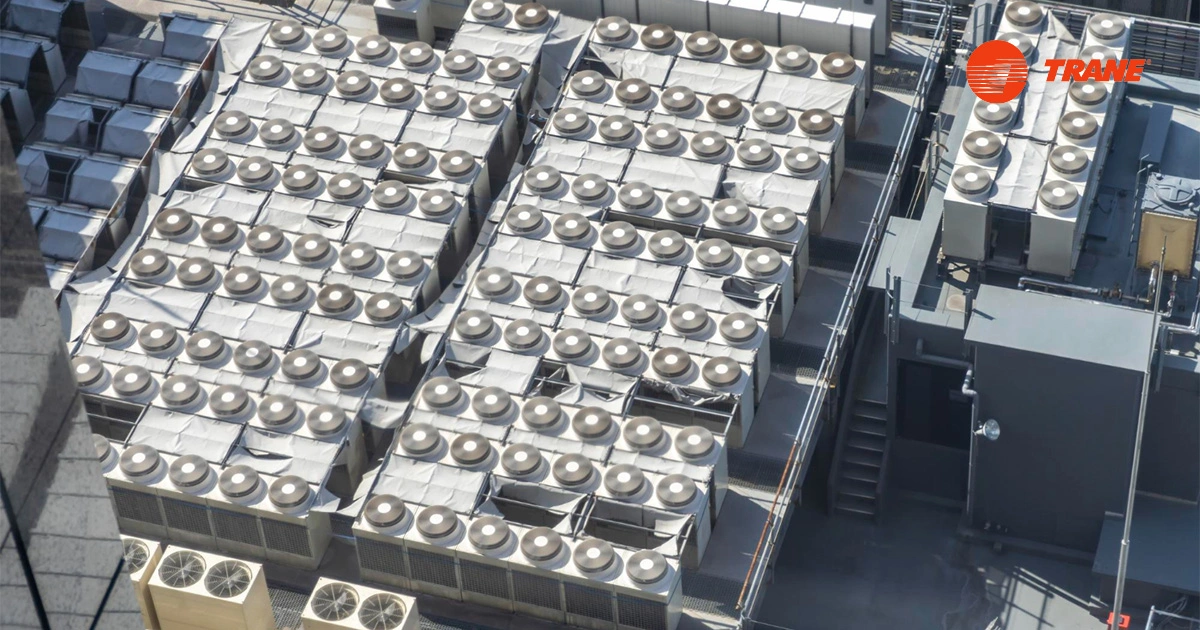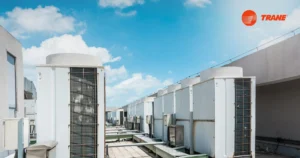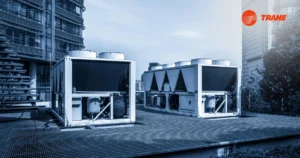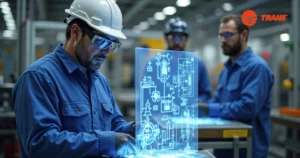Introduction
In Saudi Arabia, where summer temperatures soar above 45°C, creating comfortable indoor environments is both a necessity and a competitive advantage. From luxury hotels and resorts to residential communities and office towers, reliable comfort cooling has become central to enhancing quality of life and supporting the Kingdom’s growing tourism and housing sectors. With consumer expectations rising and industries competing for differentiation, businesses and property developers are recognising that cooling is not just about air conditioning, but about delivering consistent comfort, safety, and efficiency.
Why Comfort Cooling Matters
Comfort cooling goes beyond maintaining a pleasant temperature. It directly affects health, wellbeing, and productivity. In residential settings, poorly managed indoor climates can disrupt sleep, cause discomfort, and increase household energy costs. In the hospitality sector, guest satisfaction depends heavily on the quality of cooling systems. A hotel with inconsistent cooling risks negative reviews and reduced bookings, while one with reliable systems builds a reputation for excellence.
Saudi Arabia’s Expanding Residential Sector
The Kingdom’s residential market is growing rapidly, with new communities, high-rise apartments, and villa developments underway. For families, comfort cooling is essential to creating livable spaces that withstand the region’s harsh climate. Developers must also balance resident expectations with rising energy efficiency standards, incorporating cooling solutions that conserve resources while delivering reliable performance. By investing in advanced systems, residential projects enhance their market appeal and long-term sustainability.
The Role of Cooling in Hospitality
Tourism is a pillar of Saudi Arabia’s economic diversification strategy, and comfort cooling is a critical part of hospitality infrastructure. Resorts, hotels, and entertainment venues must maintain consistent indoor climates despite extreme outdoor conditions. Guests expect seamless comfort, whether they are attending a conference, dining, or relaxing in a luxury suite. Reliable cooling also supports back-of-house operations, from kitchens and laundry to staff accommodations, ensuring the entire hospitality ecosystem functions smoothly.
Balancing Efficiency and Expectations
One of the main challenges facing both residential and hospitality sectors is balancing comfort with energy efficiency. Traditional systems often consume vast amounts of electricity, driving up costs and placing stress on the grid. Modern comfort cooling solutions, however, integrate smart controls, variable-speed drives, and eco-friendly refrigerants to deliver precise climate management with lower energy consumption. This efficiency not only reduces operational costs but also aligns with broader goals for sustainable development.
Technology Advancements in Comfort Cooling
Innovations in cooling technology are transforming how residential and hospitality facilities manage indoor climates. Intelligent systems can adapt cooling output to occupancy levels, reducing waste in underused spaces. Advanced filtration improves air quality, an increasingly important factor for health-conscious consumers. In large-scale properties, centralised systems ensure consistent performance while offering flexibility for different zones and functions. These advancements enhance both guest experiences and operational efficiency.
The Impact on Workforce and Operations
In addition to improving guest and resident experiences, comfort cooling supports the wellbeing of employees working in residential complexes and hospitality venues. Comfortable environments reduce fatigue, increase productivity, and improve service quality. For hospitality businesses, this directly influences customer satisfaction, as motivated and comfortable staff are better equipped to deliver exceptional service.
Why Partnerships Are Critical
Delivering comfort cooling at scale requires more than equipment; it demands expertise in design, installation, and ongoing maintenance. Trane’s presence in Saudi Arabia provides residential developers and hospitality operators with access to advanced technologies and dedicated service support. With solutions tailored to the Kingdom’s climate, Trane ensures that facilities can achieve both comfort and efficiency without compromising reliability.
Conclusion
As Saudi Arabia continues to expand its residential communities and build a world-class tourism sector, comfort cooling is becoming indispensable. It safeguards wellbeing, enhances guest satisfaction, and supports the competitiveness of businesses operating in one of the hottest climates in the world. By adopting modern cooling technologies and working with reliable partners, organisations can deliver consistent comfort while controlling costs and conserving resources. Many are also complementing these solutions with flexible heating rental options that provide efficient, year-round climate management for both residents and guests.




